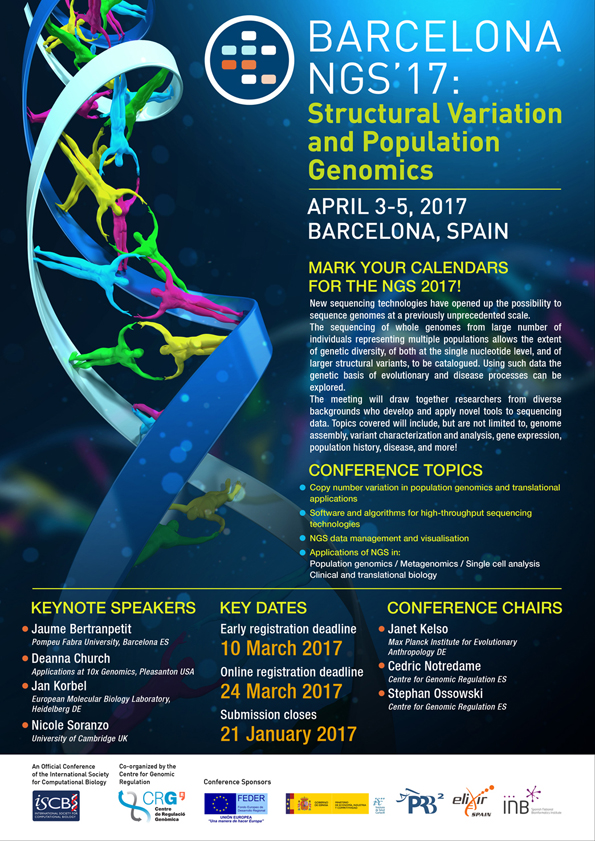Alfonso Valencia, Ph.D.
President, ISCB
S-CompBio
Structural and Computational Biology Programme
Spanish National Cancer Research Centre (CNIO) |
Thomas Lengauer, Ph.D.
President-elect, ISCB
Director
Max Planck Institute for Informatics |
Bonnie Berger, Ph.D.
Vice President, ISCB
MIT |
| |
|
|
Terry Gaasterland, Ph.D.
Vice President, ISCB
Professor, Genomics and Bioinformatics
University of California, San Diego |
Janet Kelso, Ph.D.
Vice President, ISCB
Bioinformatics Group Leader
Max-Planck Institute for Evolutionary Anthropology |
Christine Orengo, Ph.D.
Vice President, ISCB
Professor, Bioinformatics
University College London |
| |
|
|
Bruno Gaeta, Ph.D.
Treasurer, ISCB
Senior Lecturer
Bioinformatics Program Director
University of New South Wales |
Scott Markel, Ph.D.
Secretary, ISCB
Principal Bioinformatics Architect
Dassault Systèmes BIOVIA |
|









